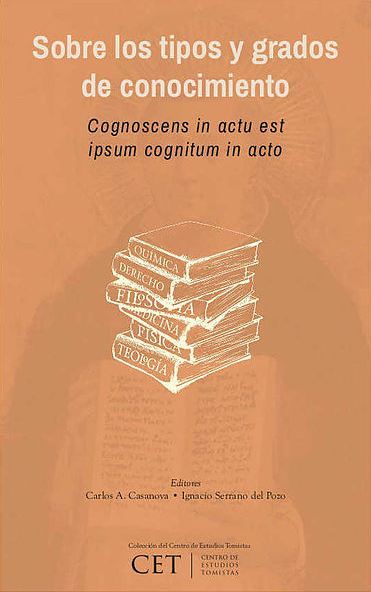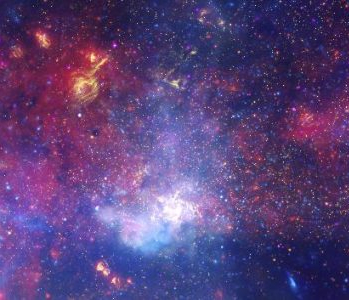The most recently published papers are listed first. (I’ve listed them in the order in which they actually became available, not the bibliographic date.) Forthcoming papers are listed next. Some are not available for download; if so, please contact me for a personal copy.
Published papers
– “Charles De Koninck and the Cosmos of the Natural Sciences”
In the proceedings of the IPC 50 Colloque Charles De Koninck et Maurice Dionne. (Read the final draft; for a final copy, please email me.) The volume is titled Le discernement des habitus – Autour de Charles De Koninck. It has been reviewed by Louis Brunet in Laval théologique et philosophique, who writes of my contribution: “L’américain John G. Brungardt souligne, à la suite de De Koninck, l’importance de reconnaître une certaine continuité entre la philosophie de la nature et les sciences expérimentales. Il en fournit la raison : « […] to preserve the theoretical common good of the human knowledge of nature ».” An excerpt of the essay is below:
In his 1941 essay “Are the Experimental Sciences Distinct from the Philosophy of Nature?” Charles De Koninck argued that the philosophy of nature and the natural, experimental sciences are not formally distinct. Rather, the experimental or positive sciences are the natural, dialectical extensions of the philosophy of nature. He developed this qualified continuity thesis throughout the remainder of his career. While it yet has some adherents, today De Koninck’s view seems to be in the minority. It seems more frequent to find Thomists maintaining that the philosophy of nature is a part or a mode of metaphysics, and at any rate distinct from the natural sciences. The great difference in education or training, vocabulary, and even social circles seems to reinforce and even to lead to this conclusion. What indeed does Athens have to do with Stockholm? Are there good reasons to continue to defend De Koninck’s continuity thesis? What difference does it make for understanding the principles of natural philosophy? Might De Koninck’s thesis help us to understand the philosophy of nature and the natural sciences as integral parts of one habitus of speculative knowledge?
– “From First Physics to Fundamental Physics and Back Again”
Now published in Aquinas and Us, edited by Timothy Kearns, Gyula Klima, and Alex Hall, the latest volume (no. 18) of the Proceedings of the Society for Medieval Logic and Metaphysics. From the publisher: “This volume considers the contemporary relevance of Aquinas’ thought and what parameters should influence its reception. It discusses the reception of Aquinas on creation ex nihilo and offers guidelines for reception in the fields of metaphysics and natural theology. Chapters on physics and philosophy of mind intersect with key modern debates. Contributions interpret Aquinas’ physics in light of contemporary findings and discuss his account of human self-awareness.” My essay is a response to one by Timothy Kearns:
To understand nature and what bodies do by nature, one must know motion; to know motion, one must grapple with potency, with real power. The “potency as such” that formally defines mobile being is grasped generically at first and must be made more conceptually determinate by further insights had through research into nature (measurements of mass, momentum, energy, or action). These are not derivable by proof or demonstration from the generic notion of mobile being, yet they are implied in it as species and properties are contained virtually within a genus. “The philosophy of nature is a kind of wisdom, but it is not the first.” So, as “first physics,” Thomistic natural philosophy must provide us with a good beginning along the road to fundamental physics.
– “Is Aristotelian-Thomistic Natural Philosophy Relevant for Cosmology?”
Now in the published proceedings of the 2019 ACPA Conference: “A Perennial Philosophy of Nature.” This essay was awarded the ACPA’s 2019 Young Scholar Award. (Read the final draft.) See Proceedings of the American Catholic Philosophical Association 93 (2019): 151–76. https://doi.org/10.5840/acpaproc2021423114.
Do advances in the natural sciences leave the followers of Aristotle and Aquinas without a cosmos? Is their natural philosophy irrelevant to modern cosmology and its Big Bang theory? The following essay answers these questions and argues that natural philosophy is perennially relevant to cosmology. It defends the idea that Aristotelian-Thomistic natural philosophy reaches a true, general definition of the universe: the unity of order of all mobile beings according to place, duration, and agent causality. The essay defends this conclusion while answering three opposing views, those of Jonathan Schaffer, Peter Simons, and Immanuel Kant. The true account is attained through reasoning about the nature of place, duration, and agent causality. Objections against these lines of argument are answered to clarify their continued relevance. Since it provides even our modern scientific cosmology with the necessarily assumed notion of the universe, Aristotelian-Thomistic natural philosophy is perennially relevant to cosmology.
– “A Thomistic Reply to Grünbaum’s Critique of Maritain on the Reality of Space”

In Facts Are Stubborn Things: Thomistic Perspectives in the Philosophies of Nature and Science, edited by Matthew Minerd. Washington, DC: American Maritain Association, 2020. (A volume of the 2018 Proceedings of the American Maritain Association, read the final draft.)
A Thomistic ontology of spacetime seems impossible, given Thomas Aquinas’s (1224–1275) outdated science and mathematics. Indeed, a critique of Jacques Maritain by Adolf Grünbaum proceeds apace, dismantling his attempts to save Thomistic philosophical realism from Einstein. However, Grünbaum’s attack was given in better form thirty years prior by the Belgian Thomist Charles De Koninck. The two critiques are analyzed. De Koninck’s arguments are superior to Grünbaum’s due to their greater precision as refutations as well as their more adequate ontology of spacetime, made possible but not explicit in Thomistic philosophy.
– “Operari sequitur esse y el principio de acción mínima”
In El obrar sigue al ser: Metafísica de la persona, la naturaleza y la acción, edited by Carlos Augusto Casanova G. and Ignacio Serrano del Pozo, 289–99. Santiago, Chile: RIL Editores, 2020. (From the proceedings of the IV Congreso Internacional de Filosofía Tomista; read the final draft; buy the book here, read about it here.)
Esta presentación es una pequeña parte de mi exploración de la naturaleza de la forma aristotélica y sus relaciones con la cosmología científica moderna. Discutiremos el principio de la acción mínima (PMA) y su conexión con el axioma tomista operari sequitur esse. Primero, discutiremos el PMA y luego pasaremos por un proceso de tres etapas para tratar de entenderlo de un modo que parece metafísico, pero más propiamente este tema se contiene entre los principios de la filosofía de la naturaleza.
– “World Enough and Form: Why Cosmology Needs Hylomorphism”
In Synthese; part of the special issue, “Form, Structure, and Hylomorphism,” guest-edited by Anna Marmodoro and Michele Paolini Paoletti. First online 6 February 2019. (Journal’s online first page; read the pre-print here.) See Synthese 198, no. 11 (2021): 2795–2827. https://doi.org/10.1007/s11229-019-02112-0.

Attending to its recent developments, and taking a long view of the history of the discipline during the twentieth century, it is no longer wise to ask whether modern cosmology has need of philosophy and answer in the negative. Cosmology needs philosophy. More controversially, however, cosmology needs a particular philosophy, the one that defends hylomorphism.
This essay proposes a comprehensive blueprint for the hylomorphic foundations of cosmology. The key philosophical explananda in cosmology are those dealing with global processes and structures, the regularity of global regularities, and the existence of the global as such. The possibility of elucidating these using alternatives to hylomorphism is outlined and difficulties with these alternatives are raised. Hylomorphism, by contrast, provides a sound philosophical ground for cosmology insofar as it leads to notions of cosmic essence, the unity of complex essences, and globally emergent properties. These are used as the basis to account for the afore- mentioned cosmological explananda and to resolve two problems in the philosophy of cosmology: the meta-law dilemma and the uniqueness of the universe. In summary, cosmology needs hylomorphism because it is able to ground cosmology’s efforts as a scientific inquiry. It can do so because hylomorphism philosophically accounts for changing substances and aggregates of substances, the various scales of law-governed behavior measured by the natures of those substances, and how those substances as parts relate to the universe as a whole.
– “Is Personal Dignity Possible Only If We Live in a Cosmos?”

In Proceedings of the American Catholic Philosophical Association 92 (2018): 223–40. (Journal link here; read the final draft.)
The Catholic Church has increasingly relied upon the principle of human dignity as part of its evangelical mission in modern times. Catholic philosophers must therefore defend this principle in service to Catholic theology. One aspect of this defense is how the human person relates to the universe. Is human dignity of a piece with the material universe in which we find ourselves? Or is the part’s dignity alien in kind to such a whole? Or does the truth lie somewhere in between? The Thomistic metaphysics of creation properly locates the human being in the universe as a part, ordered to the universe’s common good of order and ultimately to God. Human dignity is possible only in a cosmos; that this is concordant with modern scientific cosmology is briefly defended in conclusion.
– “St. Thomas and Modern Natural Science: Reconsidering Abstraction from Matter”

In Cognoscens in Actu Est Ipsum Cognitum in Actu: Sobre Los Tipos y Grados de Conocimiento, edited by Carlos Augusto Casanova G. and Ignacio Serrano del Pozo, 433–471. Santiago: RIL Editores, 2018. (Buy the book here)
The realism grounding St. Thomas Aquinas’s pre-modern natural science defends the reception of similitudes of the forms of things known by abstraction. Modern natural science challenges this abstractionist account by recasting “form” in the leading role of principle of intelligibility—instead of forms, modern science discovers laws. Thomistic realism is prima facie incompatible with this account. Following Charles De Koninck, this essay outlines a rapprochement between the epistemology of pre-modern, Thomistic natural science and its modern successor. I argue that natural forms are noetic limits towards which physical laws tend, and our grasp of this tendency uses a mode of knowledge comparable to what St. Thomas termed “universal in repraesentando.”
– “Charles De Koninck and the Sapiential Character of Natural Philosophy”
In American Catholic Philosophical Quarterly 90, no. 1 (2016): 1–24. doi:10.5840/acpq20161570.
In his early career, Charles De Koninck defended two theses: first, that natural philosophy (understood along Aristotelian-Thomistic lines) and the modern sciences are formally distinct; and second, that natural philosophy is a qualified form of wisdom with respect to those particular sciences. Later in his career, De Koninck changed his mind about the first thesis. Does this change of mind threaten the coherence of his second thesis? First, I explain De Koninck’s original position on the real distinction between natural philosophy and the sciences and his reasoning for why natural philosophy possesses a qualified sapiential office. Second, I consider De Koninck’s change of mind and defend the conclusion that, even if the modern sciences are a dialectical extension of natural philosophy, the latter is still wisdom in relation to the former. Finally, I discuss both examples of this sapiential function and its limitations.




